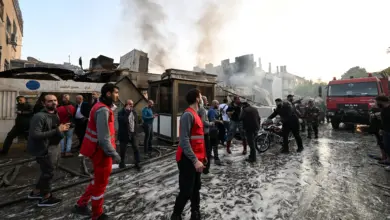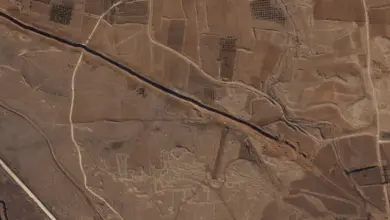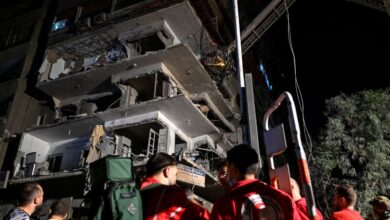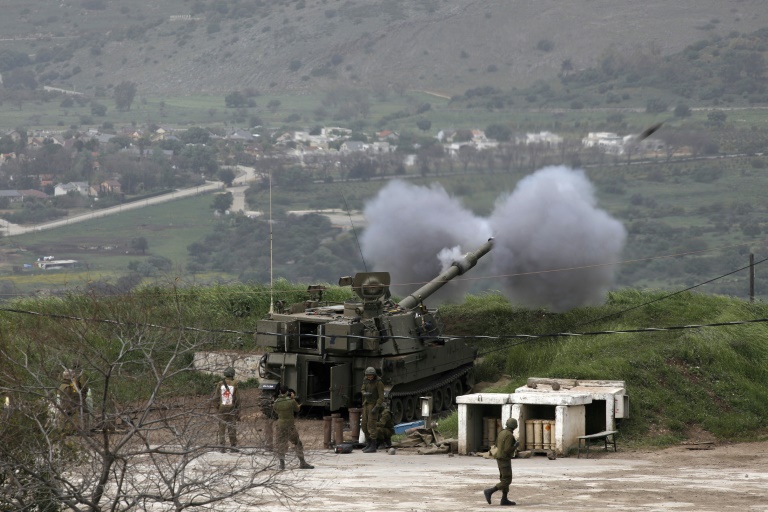AMMAN, Jordan – Syrian security forces shot dead at least 20 protesters on Friday as hundreds of thousands of people took to the streets across the country in the biggest protests so far against President Bashar al-Assad.
Assad, facing the greatest challenge to 40 years of Baath Party rule, has sought to crush demonstrations that broke out in March. But although rights groups say some 1400 civilians have been killed, the protests have swelled in size.
"These are the biggest demonstrations so far. It is a clear challenge to the authorities, especially when we see all these numbers coming out from Damascus for the first time," said Rami Abdelrahman, head of the Syrian Observatory for Human Rights.
Police fired live ammunition and teargas in the capital Damascus and its suburbs, killing 11 people, and in southern Syria near the Jordanian border, where four people were killed, witnesses and activists said.
Three protesters were also shot dead in the northwestern province of Idlib, near the Turkish border, where troops and tanks have attacked villages, the witnesses and activists said. Two people were also killed in the city of Homs.
A witness in the Rukn al-Din district of Damascus said hundreds of young men wearing white masks fought security forces with sticks and stones.
"Down, down Bashar al-Assad," they chanted.
"We are in Midan and they are firing teargas at us, people are chanting," a witness said by telephone from the center of Damascus.
In the city of Hama, scene of a 1982 massacre by the military, live video footage filmed by residents showed a huge crowd in the main Orontos Square shouting "the people want the overthrow of the regime."
At least 350,000 people demonstrated in the eastern province of Deir al-Zor, the Syrian Observatory for Human Rights said. Syrian forces shot dead two pro-democracy protesters there on Thursday, residents said.
BIGGEST PROTESTS IN DAMASCUS
Until now, the biggest demonstrations have taken place in impoverished towns and villages outside Damascus where one in 10 of Syria's 20 million population lives. Protests in the capital have rarely mustered more than a few hundred people.
Damascus has benefited from substantial foreign investment and its citizens are on average wealthier than those in the provinces. Security is also much tighter.
Activists estimate the number of secret police on the streets of Damascus has more than doubled since protests started but the economy has stagnated. Faced with uncertainty, foreign investors are pulling out in droves and unemployment is rising.
To counter that, Syria's main ally, Iran, is considering offering US$5.8 billion in financial help, including a three-month loan worth US$1.5 billion to be made available immediately, French business newspaper Les Echos said, citing a report by a Tehran think-tank linked to Iran's leadership.
International sanctions are targeted at Syria's leaders, not at its banks and companies. But France and the United States are pressing for tougher penalties and a United Nations Security Council resolution condemning the crackdown, after the embassies of both countries in Syria were attacked.
"We have said Syria can't go back to the way it was before, that Assad has lost his legitimacy in the eyes of his own people," US Secretary of States Hillary Clinton told a news conference in Istanbul.
"We, along with many others in the region and beyond, have said we strongly support a democratic transition," she said. "The ultimate destiny of the Syrian regime and Syrian people lies with the people themselves."
Assad has responded to protests with a mixture of force and promises of reforms. He has given thousands of Kurds citizenship and ended a state of emergency. He has also called for dialogue but main opposition groups and figures boycotted a conference organized by the government because the violence has continued.
Emboldened by the spreading protests, prominent opposition figures and activists are to hold a conference in Istanbul on Saturday that will be closely coordinated with another conference in Damascus to form a shadow government of "independent, non-political technocrats" to prepare for when Assad loses authority.




